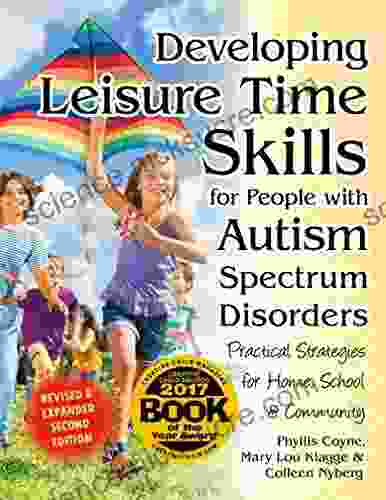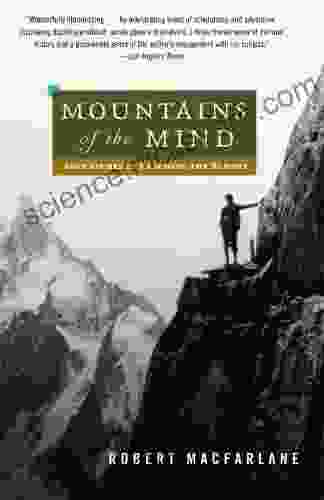How You Can Support Young Children's Language Development (Second Edition)

Language is a vital skill that enables young children to express themselves, communicate with others, and interact with the world around them. Supporting young children's language development is crucial for their cognitive, social, and emotional growth. 4.7 out of 5 This comprehensive guide provides a detailed overview of language development in young children, from birth to five years old. It covers key milestones, assessment techniques, home-based support strategies, and evidence-based activities to nurture language skills. Assessing children's language development is essential for identifying potential delays or areas of concern. Here are some common assessment tools: It's important to note that assessment should be conducted by qualified professionals, such as speech-language pathologists or early intervention specialists. Parents and caregivers play a crucial role in supporting young children's language development. Here are some evidence-based strategies: Here are some fun and engaging activities to promote language development in young children: If a child shows signs of language delay or difficulties, it's important to seek early language intervention. Speech-language pathologists provide therapeutic services to address language impairments and enhance communication skills. Early intervention is essential for improving language outcomes and reducing the impact of language delays on overall development. It may involve: Language : English File size : 1908 KB Text-to-Speech : Enabled Screen Reader : Supported Enhanced typesetting : Enabled Word Wise : Enabled Print length : 334 pages Language Development Milestones
Birth to 12 Months
12 to 24 Months
2 to 3 Years
3 to 4 Years
4 to 5 Years
Language Assessment
Home-Based Language Support
Language Learning Activities
Birth to 12 Months
12 to 24 Months
2 to 3 Years
3 to 4 Years
4 to 5 Years
Early Language Intervention
4.7 out of 5
| Language | : | English |
| File size | : | 1908 KB |
| Text-to-Speech | : | Enabled |
| Screen Reader | : | Supported |
| Enhanced typesetting | : | Enabled |
| Word Wise | : | Enabled |
| Print length | : | 334 pages |
Do you want to contribute by writing guest posts on this blog?
Please contact us and send us a resume of previous articles that you have written.
 Fiction
Fiction Non Fiction
Non Fiction Romance
Romance Mystery
Mystery Thriller
Thriller SciFi
SciFi Fantasy
Fantasy Horror
Horror Biography
Biography Selfhelp
Selfhelp Business
Business History
History Classics
Classics Poetry
Poetry Childrens
Childrens Young Adult
Young Adult Educational
Educational Cooking
Cooking Travel
Travel Lifestyle
Lifestyle Spirituality
Spirituality Health
Health Fitness
Fitness Technology
Technology Science
Science Arts
Arts Crafts
Crafts DIY
DIY Gardening
Gardening Petcare
Petcare Al Strachan
Al Strachan Donald Woods Winnicott
Donald Woods Winnicott John Riley
John Riley Jim Steenburgh
Jim Steenburgh David F Kelly
David F Kelly Original Edition Kindle Edition
Original Edition Kindle Edition Zondervan
Zondervan Douglas G Altman
Douglas G Altman Roxy And Ben Dawson
Roxy And Ben Dawson Stephen M Camarata
Stephen M Camarata Kerstin Gier
Kerstin Gier David Jason
David Jason S A Klopfenstein
S A Klopfenstein Anthonissa Moger
Anthonissa Moger Toby Wilkinson
Toby Wilkinson Frances E Jensen
Frances E Jensen Leigh Sales
Leigh Sales Christopher Gavigan
Christopher Gavigan Bianca Smith
Bianca Smith Anna Hickey Moody
Anna Hickey Moody Michael Freedland
Michael Freedland Dave Whitson
Dave Whitson Robert Heidler
Robert Heidler Judy Jewell
Judy Jewell Christos A Djonis
Christos A Djonis Michael Miller
Michael Miller Conor Daly
Conor Daly Melinda Rushe
Melinda Rushe Terry Funk
Terry Funk Susan B Lovejoy
Susan B Lovejoy Carl Gustav Jung
Carl Gustav Jung Tod E Bolsinger
Tod E Bolsinger Nassim Nicholas Taleb
Nassim Nicholas Taleb George Buehler
George Buehler James Willard Schultz
James Willard Schultz Patrick O Sullivan
Patrick O Sullivan Arthur Fleischmann
Arthur Fleischmann Alan Burdick
Alan Burdick Satya Sundar Sethy
Satya Sundar Sethy Jane Bottomley
Jane Bottomley Belinda Luscombe
Belinda Luscombe Hammad Fozi
Hammad Fozi Julie Bradley
Julie Bradley Scott Surovich
Scott Surovich Jane Poynter
Jane Poynter Franz Metcalf
Franz Metcalf Billy Walsh
Billy Walsh Alan R Hall
Alan R Hall Mista Nove
Mista Nove Kareem Abdul Jabbar
Kareem Abdul Jabbar Lisa Newton
Lisa Newton Juliet Marillier
Juliet Marillier Rosemarie Anderson
Rosemarie Anderson Leif K Karlsen
Leif K Karlsen Peter Irvine
Peter Irvine Alana Chernila
Alana Chernila Al Owens
Al Owens Massad Ayoob
Massad Ayoob Megan Gray Md
Megan Gray Md Anne Enright
Anne Enright Bill Walker
Bill Walker John Feinstein
John Feinstein Nick Lyons
Nick Lyons Ndeye Labadens
Ndeye Labadens Isabella Morris
Isabella Morris Alfred S Posamentier
Alfred S Posamentier Bradley Efron
Bradley Efron Takuan Soho
Takuan Soho Andrea Travillian
Andrea Travillian Shing Tung Yau
Shing Tung Yau Anne Dachel
Anne Dachel Jacqueline Tourville
Jacqueline Tourville Mike Rothschild
Mike Rothschild Douglas T Hall
Douglas T Hall Bettina Gordon Wayne
Bettina Gordon Wayne Frank E Harrell Jr
Frank E Harrell Jr Ken Denmead
Ken Denmead Contractor Education Inc
Contractor Education Inc Janet Houser
Janet Houser Pallas Snider
Pallas Snider Shoshana Levin Fox
Shoshana Levin Fox Gavin Francis
Gavin Francis Daphne Rose Kingma
Daphne Rose Kingma Chris Bowers
Chris Bowers Aphra Behn
Aphra Behn Michal Stawicki
Michal Stawicki Sam J Fires
Sam J Fires Ann Hagedorn
Ann Hagedorn Craig Childs
Craig Childs Mike Martin
Mike Martin Joyce Burkhalter Flueckiger
Joyce Burkhalter Flueckiger Bill Parisi
Bill Parisi Noel St Clair
Noel St Clair Morgan Lyle
Morgan Lyle W E Fairbairn
W E Fairbairn Tom Shachtman
Tom Shachtman Aileen Erin
Aileen Erin S Connolly
S Connolly David A Sousa
David A Sousa John Bird
John Bird Deborah Harkness
Deborah Harkness Hiro Ainana
Hiro Ainana Amye Archer
Amye Archer Amelia Mayer
Amelia Mayer Robert L Kelly
Robert L Kelly Samuel N Rosenberg
Samuel N Rosenberg Lj Andrews
Lj Andrews Bobby Flay
Bobby Flay Jeanne Faulkner
Jeanne Faulkner Larry Wasserman
Larry Wasserman Alan Booth
Alan Booth Alan Shipnuck
Alan Shipnuck Gill Rapley
Gill Rapley Erin Ekins
Erin Ekins Doug Gelbert
Doug Gelbert Jakob Tanner
Jakob Tanner Ged Jenkins Omar
Ged Jenkins Omar Lecile Harris
Lecile Harris Alaina Talboy
Alaina Talboy Howard Greene
Howard Greene Bill Friedrich
Bill Friedrich Hervey Garrett Smith
Hervey Garrett Smith Robert A Sadowski
Robert A Sadowski Roy Dittmann
Roy Dittmann Janice Selekman
Janice Selekman Alan Vermilye
Alan Vermilye Jane P Gardner
Jane P Gardner Donna Morang
Donna Morang Laurie Pickard
Laurie Pickard Dave Heller
Dave Heller Tina Dreffin
Tina Dreffin Aileen Nielsen
Aileen Nielsen Jenni Hicks
Jenni Hicks Joe Bertagna
Joe Bertagna Snap Summaries
Snap Summaries Aileen Evans
Aileen Evans Letisha Galloway
Letisha Galloway David King
David King Louis Schubert
Louis Schubert Gary R Varner
Gary R Varner Percy Boomer
Percy Boomer Rob Casey
Rob Casey Sandy Lindsey
Sandy Lindsey Kidada Jones
Kidada Jones Benjamin Johnston
Benjamin Johnston Thomas Metzinger
Thomas Metzinger Al Marlowe
Al Marlowe John Irving
John Irving Jerry Robeson
Jerry Robeson Deitra Leonard Lowdermilk
Deitra Leonard Lowdermilk Joe Clement
Joe Clement Mykel Hawke
Mykel Hawke Aimee Aristotelous
Aimee Aristotelous Michael Gray
Michael Gray Peter Hathaway Capstick
Peter Hathaway Capstick Angelina Wilson
Angelina Wilson Charles B White
Charles B White John Muir
John Muir Sara Wickham
Sara Wickham Alan Lawrence Sitomer
Alan Lawrence Sitomer Don Casey
Don Casey William Harding
William Harding Alan S Gurman
Alan S Gurman Kelly Jensen
Kelly Jensen Farlex International
Farlex International Amelia Simmons
Amelia Simmons George E Andrews
George E Andrews Stephanie Izard
Stephanie Izard Carla Schroder
Carla Schroder Yang Jwing Ming
Yang Jwing Ming Al Macy
Al Macy Michael D Rich
Michael D Rich Micky Ward
Micky Ward Gary B Ferngren
Gary B Ferngren Courtney Macavinta
Courtney Macavinta Andre Agassi
Andre Agassi Shaun Tomson
Shaun Tomson Christopher Scordo
Christopher Scordo Vasilis Konstantinos Giontzis
Vasilis Konstantinos Giontzis Al Barkow
Al Barkow Akwaeke Emezi
Akwaeke Emezi Alan Rouse
Alan Rouse Stephen Wolfram
Stephen Wolfram Kiku Hughes
Kiku Hughes Linda G Morris
Linda G Morris J Zoltan
J Zoltan Francesca Lia Block
Francesca Lia Block Graham Bower
Graham Bower Nicholas Romanov
Nicholas Romanov Teresa Mccallum
Teresa Mccallum Noha Mellor
Noha Mellor Miles Mckenna
Miles Mckenna Nancy Hughes
Nancy Hughes Margaret J Wheatley
Margaret J Wheatley Andrew Jamieson
Andrew Jamieson Catherine Belknap
Catherine Belknap Al Pasha
Al Pasha Martin Erwig
Martin Erwig J R Haseloff
J R Haseloff Kerry Diamond
Kerry Diamond Jordon Greene
Jordon Greene Vanessa Ogle
Vanessa Ogle Florence Williams
Florence Williams Dean Burnett
Dean Burnett Gregory J Davenport
Gregory J Davenport Michael Sidgwick
Michael Sidgwick Spencer Wells
Spencer Wells Clint Emerson
Clint Emerson Emeran Mayer
Emeran Mayer Tonya Johnston
Tonya Johnston Dimitri Loose
Dimitri Loose David Crabtree
David Crabtree Mackenzi Lee
Mackenzi Lee Mel Thompson
Mel Thompson Celeste Jones
Celeste Jones Helena Clare
Helena Clare Hannah Ewens
Hannah Ewens Rehana Jawadwala
Rehana Jawadwala Alan S Kaufman
Alan S Kaufman Harriet Brown
Harriet Brown Saul Rip
Saul Rip Marc M Triola
Marc M Triola Kate Bettison
Kate Bettison Magnus Thollander
Magnus Thollander Steve Michalik
Steve Michalik George Plimpton
George Plimpton Thomas Kurz
Thomas Kurz Dmitry Zinoviev
Dmitry Zinoviev I Johnson
I Johnson Celeste Headlee
Celeste Headlee Kate Brian
Kate Brian Barbara Oehlberg
Barbara Oehlberg Martin Rooney
Martin Rooney Jon Tyson
Jon Tyson Bruce Lee
Bruce Lee Charlotte Markey
Charlotte Markey Douglas Noll
Douglas Noll Kevin Williams
Kevin Williams Tenth Edition Revised Kindle Edition
Tenth Edition Revised Kindle Edition Caitlin Zaloom
Caitlin Zaloom Wayne Stewart
Wayne Stewart Matthew Mcbee
Matthew Mcbee R A Salvatore
R A Salvatore Habeeb Quadri
Habeeb Quadri Al Roker
Al Roker Helen Palmer
Helen Palmer Eddy Starr Ancinas
Eddy Starr Ancinas G H Hardy
G H Hardy Po Bronson
Po Bronson Lingo Mastery
Lingo Mastery Penney Peirce
Penney Peirce Dr David Geier
Dr David Geier Alan E Kazdin
Alan E Kazdin Markus Rex
Markus Rex Steven Trimble
Steven Trimble Katharine Graves
Katharine Graves Pavel Tsatsouline
Pavel Tsatsouline Al Ristori
Al Ristori Emily Harris Adams
Emily Harris Adams Alice Oseman
Alice Oseman Suze Guillaume
Suze Guillaume Dusty Rhodes
Dusty Rhodes Steve Moore
Steve Moore Matthew Sturm
Matthew Sturm Judith Garrard
Judith Garrard Robin Mckinley
Robin Mckinley Will Storr
Will Storr Rose Lynn Fisher
Rose Lynn Fisher James Gleick
James Gleick Peg Tyre
Peg Tyre John T Hansen
John T Hansen Robert E Stake
Robert E Stake Dennis Jarecke
Dennis Jarecke Andy Zipser
Andy Zipser James F Boswell
James F Boswell Eden O Neill
Eden O Neill Michael Domican
Michael Domican Lex Croucher
Lex Croucher Jonathan White
Jonathan White Ken Schultz
Ken Schultz Aidan Comerford
Aidan Comerford Arnold Yates
Arnold Yates Mendocino Press
Mendocino Press United States Government Us Marine Corps
United States Government Us Marine Corps Christopher Hellman
Christopher Hellman Barbara Scott
Barbara Scott Terry Breverton
Terry Breverton Mark Drolsbaugh
Mark Drolsbaugh Bob Mayer
Bob Mayer Lexie Scott
Lexie Scott Joanne Webb
Joanne Webb Nilakantasrinivasan J Neil
Nilakantasrinivasan J Neil Edward A Tiryakian
Edward A Tiryakian Mark Booth
Mark Booth Aiva Books
Aiva Books Steven H Strogatz
Steven H Strogatz Jessica Battilana
Jessica Battilana Charles J Thayer
Charles J Thayer Ron L Deal
Ron L Deal Jessica Cornwell
Jessica Cornwell Brandy Roon
Brandy Roon Robert Macfarlane
Robert Macfarlane David Vine
David Vine Amanda Ford
Amanda Ford Daniel C Okpara
Daniel C Okpara Alana Mclaren
Alana Mclaren Sophia Joy
Sophia Joy Alan Garner
Alan Garner Brian Mills
Brian Mills Jill Stamm
Jill Stamm Michael Casey
Michael Casey Martin J Pring
Martin J Pring Bryon Powell
Bryon Powell Jackson Katz
Jackson Katz Andrew Rowe
Andrew Rowe Jacqueline Fitzpatrick
Jacqueline Fitzpatrick Aja Raden
Aja Raden Aitzaz Imtiaz
Aitzaz Imtiaz Jacob K Olupona
Jacob K Olupona Thubten Chodron
Thubten Chodron Nina Lacour
Nina Lacour Denise Alvarado
Denise Alvarado Al Yellon
Al Yellon Kristine Barnett
Kristine Barnett Aidan Dodson
Aidan Dodson Grace Lebow
Grace Lebow E Cheng
E Cheng Beata Bliss Lewis Md
Beata Bliss Lewis Md The Rogue Hypnotist
The Rogue Hypnotist Amy Edelstein
Amy Edelstein Matt Mosher
Matt Mosher 12th Edition Kindle Edition
12th Edition Kindle Edition Sarah Hendrickx
Sarah Hendrickx Publishdrive Edition Kindle Edition
Publishdrive Edition Kindle Edition Gordon H Orians
Gordon H Orians Gary Smith
Gary Smith John H Moore
John H Moore Chris Klug
Chris Klug Princess Her
Princess Her Karen Levin Coburn
Karen Levin Coburn Terry L Duran
Terry L Duran Harold Klemp
Harold Klemp Steven Horak
Steven Horak John Leo
John Leo George Knudson
George Knudson Kevin B Shearer
Kevin B Shearer Antipodean Writer
Antipodean Writer Kim Stanley Robinson
Kim Stanley Robinson Peter Ballingall
Peter Ballingall Dan Dipiro
Dan Dipiro Andy Adams
Andy Adams Martin Luther King Jr
Martin Luther King Jr Alastair Humphreys
Alastair Humphreys Samuel Carbaugh
Samuel Carbaugh Kevin Hunter
Kevin Hunter Ai Publishing
Ai Publishing David D Burns
David D Burns Tim Gallagher
Tim Gallagher Ilan Dvir
Ilan Dvir Skeleton Steve
Skeleton Steve Lee Carroll
Lee Carroll Alan Porter
Alan Porter Carol Tuttle
Carol Tuttle George M Fredrickson
George M Fredrickson Layla Moon
Layla Moon Cat Warren
Cat Warren Gillian Gill
Gillian Gill Elizabeth Thompson
Elizabeth Thompson Jerry Robertson
Jerry Robertson Alan C Acock
Alan C Acock John J Miller
John J Miller Paramahansa Yogananda
Paramahansa Yogananda Esther Parry
Esther Parry Kardas Publishing
Kardas Publishing Mary Basick
Mary Basick Linda Welters
Linda Welters Helen Hollick
Helen Hollick Jeff Maynard
Jeff Maynard Jay Speight
Jay Speight Erin Lovelace
Erin Lovelace Margit Ystanes
Margit Ystanes Collins Easy Learning
Collins Easy Learning Albert Einstein
Albert Einstein Paul G Schempp
Paul G Schempp Aidan Chambers
Aidan Chambers Ahmed Osman
Ahmed Osman Rebecca Jones
Rebecca Jones Jacqueline Church Simonds
Jacqueline Church Simonds Vernon Coleman
Vernon Coleman Robert M Emerson
Robert M Emerson Trevor Lund
Trevor Lund David Roberts
David Roberts Mark Harris
Mark Harris Alan Hearnshaw
Alan Hearnshaw Rick Bass
Rick Bass Orson Scott Card
Orson Scott Card Jon Emmett
Jon Emmett Gary Player
Gary Player Madeline Milne
Madeline Milne Lisa Marasco
Lisa Marasco Sir Edmund Hillary
Sir Edmund Hillary Damon Lee
Damon Lee Alan Margot
Alan Margot Taquetta Baker
Taquetta Baker Edupan7 Publishing
Edupan7 Publishing Alan Lightman
Alan Lightman Andrew Blum
Andrew Blum Howard Maxwell
Howard Maxwell Alice Scordato
Alice Scordato Bryan Mann
Bryan Mann Jeremy Miles
Jeremy Miles Jack Nicklaus
Jack Nicklaus Constance Classen
Constance Classen Josh Kilmer Purcell
Josh Kilmer Purcell Vishwesh Bhatt
Vishwesh Bhatt Molly Absolon
Molly Absolon Melissa Bashardoust
Melissa Bashardoust Timm Woods
Timm Woods Michael Morpurgo
Michael Morpurgo Theodore P Jorgensen
Theodore P Jorgensen William A Kaplin
William A Kaplin Alan E Sparks
Alan E Sparks G E R Lloyd
G E R Lloyd Alex Light
Alex Light Brenda Nathan
Brenda Nathan Kiersten White
Kiersten White Anders Halverson
Anders Halverson Timothy C Smith
Timothy C Smith Truman Everts
Truman Everts Bob Plott
Bob Plott Vera Nazarian
Vera Nazarian Howard Hill
Howard Hill Gina Guddat
Gina Guddat Sheila Barton
Sheila Barton Al Desetta M A
Al Desetta M A E A Koetting
E A Koetting Al Sweigart
Al Sweigart Pantea Kalhor
Pantea Kalhor Dorothy H Crawford
Dorothy H Crawford Jill Homer
Jill Homer Ainsley Arment
Ainsley Arment Jan Smith
Jan Smith Natazha Raine O Connor
Natazha Raine O Connor Erica Westly
Erica Westly Anahad O Connor
Anahad O Connor James Witts
James Witts Mike Warren
Mike Warren We Fairbairn
We Fairbairn Betsy Tobin
Betsy Tobin Christopher Willard
Christopher Willard Zita West
Zita West Richard Pears
Richard Pears Len Sperry
Len Sperry M K Hume
M K Hume Rand Cardwell
Rand Cardwell Jay Revell
Jay Revell Lo Bosworth
Lo Bosworth Jonathan Gottschall
Jonathan Gottschall Lauren Blackwood
Lauren Blackwood Cynthia Clumeck Muchnick
Cynthia Clumeck Muchnick Mark Goulston
Mark Goulston Joe Berardi
Joe Berardi Dr Joseph Parent
Dr Joseph Parent Akil Palanisamy
Akil Palanisamy Elaine Howard Ecklund
Elaine Howard Ecklund Mark Occhilupo
Mark Occhilupo Sara Hanover
Sara Hanover Dr Guy Leschziner
Dr Guy Leschziner Alan Gelb
Alan Gelb Alan Murchison
Alan Murchison Hope Smith
Hope Smith Dylan Alcott
Dylan Alcott Gayle Peterson
Gayle Peterson Michael W King
Michael W King Marsha Wenig
Marsha Wenig Lisa Kenney
Lisa Kenney Jamie Baulch
Jamie Baulch James A Michener
James A Michener Jay Annelli
Jay Annelli Meredith Marsh
Meredith Marsh Alan Graham
Alan Graham Olivia Gentile
Olivia Gentile Rebekah Sack
Rebekah Sack Mariam N Ottimofiore
Mariam N Ottimofiore Kai Nacke
Kai Nacke Alan Watts
Alan Watts Nick Hughes
Nick Hughes Jay H Lefkowitch
Jay H Lefkowitch Bruce J Macfadden
Bruce J Macfadden Juno Roche
Juno Roche Cindy Hudson
Cindy Hudson Dawn Sakamoto Paiva
Dawn Sakamoto Paiva Gordon R Dickson
Gordon R Dickson Sonia Nazario
Sonia Nazario Marcus Chown
Marcus Chown Chris Vines
Chris Vines Rene D Zweig
Rene D Zweig George Monbiot
George Monbiot Jessica Cunsolo
Jessica Cunsolo Michael Shermer
Michael Shermer William Foote Whyte
William Foote Whyte Arnold Haultain
Arnold Haultain Gail Tully
Gail Tully Clyde Fitch
Clyde Fitch
Light bulbAdvertise smarter! Our strategic ad space ensures maximum exposure. Reserve your spot today!
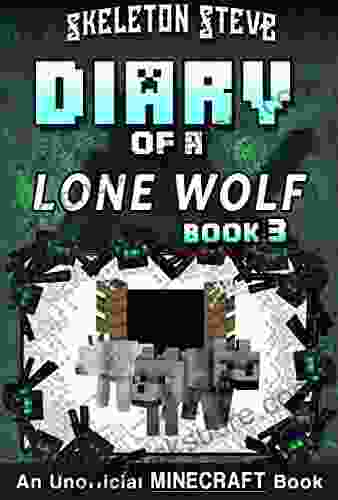
 Julio CortázarThe Unofficial Minecraft Diary for Kids, Teens, Nerds, Adventure Fan Fiction,...
Julio CortázarThe Unofficial Minecraft Diary for Kids, Teens, Nerds, Adventure Fan Fiction,... E.E. CummingsFollow ·17.5k
E.E. CummingsFollow ·17.5k Jerry HayesFollow ·14.2k
Jerry HayesFollow ·14.2k David PetersonFollow ·8.8k
David PetersonFollow ·8.8k Roald DahlFollow ·12.9k
Roald DahlFollow ·12.9k Emilio CoxFollow ·9.9k
Emilio CoxFollow ·9.9k Floyd RichardsonFollow ·18.5k
Floyd RichardsonFollow ·18.5k Jay SimmonsFollow ·7.8k
Jay SimmonsFollow ·7.8k Eli BlairFollow ·8.3k
Eli BlairFollow ·8.3k

 Deacon Bell
Deacon BellCompilation of Short Stories on Mental Illness and Ways...
Mental illness is a serious issue that affects...
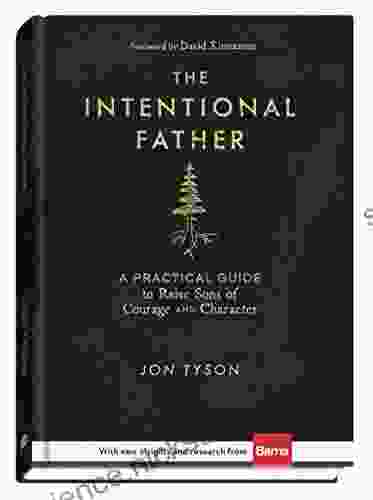
 Jonathan Hayes
Jonathan HayesThe Practical Guide to Raising Courageous and...
As parents, we all want...

 Carlos Fuentes
Carlos FuentesA Journey to Remember: The High Sierra Love Story of...
Prologue: A Wilderness Encounter Beneath...
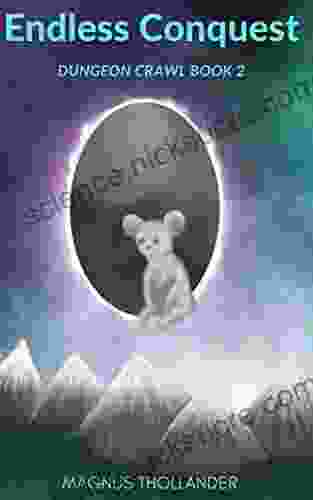
 Douglas Foster
Douglas FosterEndless Conquest: Embark on an Immersive Dungeon Crawl in...
Endless Conquest is a captivating LitRPG...
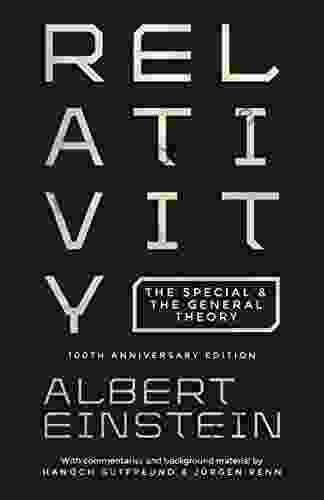
 Caleb Long
Caleb LongThe Special and the General Theory 100th Anniversary...
The year 2015 marks a...
4.7 out of 5
| Language | : | English |
| File size | : | 1908 KB |
| Text-to-Speech | : | Enabled |
| Screen Reader | : | Supported |
| Enhanced typesetting | : | Enabled |
| Word Wise | : | Enabled |
| Print length | : | 334 pages |



